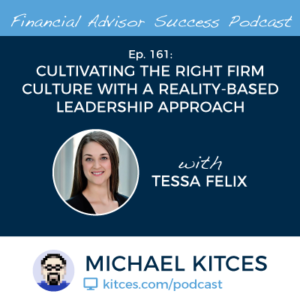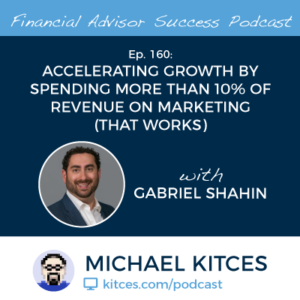Welcome back to the 162nd episode of Financial Advisor Success Podcast!
My guest on today's podcast is Tim Bickmore. Tim is the co-founder and the director of financial planning for LBW Wealth Management, an independent RIA based in Madison, Wisconsin, that oversees more than $50 million of assets under management for 230 client households.
What's unique about Tim, though, is that despite having rapid success and growing their advisory firm to over $50 million in just the past 5 years, they're concerned that what has gotten them here won't get them there – to the growth that comes next, particularly as the firm is focusing more and more on offering comprehensive financial planning advice and trying to manage the additional time and productivity limitations that come with a deeper financial planning process. Leading Tim not only to share his story of business success in getting to this point but also to ask for advice about what they should be doing to grow profitably from here.
In this episode, we talk in-depth about the evolution of Tim's advisory firm, from their initial five years of building around the AUM model, their decision to shift to a blended model with a base monthly subscription fee for financial planning advice alongside a reduced AUM fee for investment management. The way their new business models, helping them both to ensure profitability for new clients regardless of their assets, while also opening up new markets for non-AUM young professionals and business owners in their 20s, 30s, and 40s. And the real-world challenges and how to position a change in your fees and focus of the firm with all your existing clients who may now face a significant fee increase.
We also talk in-depth about LBW's financial planning process for younger clientele in their 20s, 30s, and 40s; the reason the firm left MoneyGuidePro for eMoney Advisor as a better platform to give advice to next-generation clients; the increasingly cash-flow-based approach that LBW has taken, focusing not on long-term cash flow planning and retirement projections but categorizing and reflecting on the client's short-term household cash flow instead; how Tim is implementing a more “Agile Financial Planning” approach in his advisory firm; and how the reality is that even a highly-efficient and profitable advisory firm will still find it less profitable to scale financial planning for the second or third hundred clients than it is for the first 100.
And be certain to listen to the end where Tim shares the unexpected surprises that hit him as a business owner running a financial planning business. How even though they were challenging, he still believes that they were necessary to go through as part of the learning process to build a business, and why in the end it's all been worthwhile to him, not simply because he's been able to grow a valuable business, but because in the end, financial planning itself is first and foremost psychologically rewarding to us in the opportunity to meet new people from so many different walks of life and help them.

 Welcome back to the 161st episode of Financial Advisor Success Podcast!
Welcome back to the 161st episode of Financial Advisor Success Podcast! Welcome back to the 160th episode of Financial Advisor Success Podcast!
Welcome back to the 160th episode of Financial Advisor Success Podcast!
